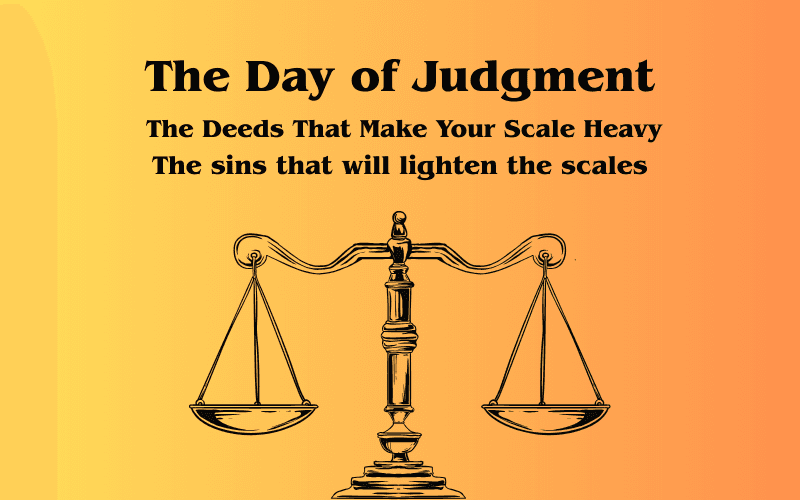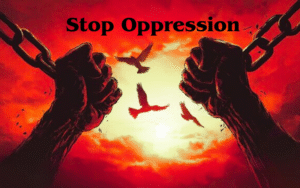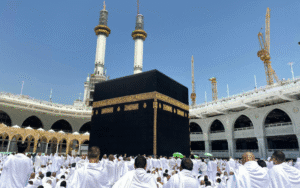The Day of Judgment: The Deeds That Make Your Scale Heavy

Belief in the Akhirah, or the Hereafter, is one of the fundamental principles of Islam. An inevitable stage of the afterlife is the weighing of deeds on the Day of Judgment in Islam, a process centered around the ‘Mizan,’ or the scales of deeds. On this day, Allah Ta’ala will weigh all the deeds of a person’s worldly life—big or small, public or secret. Whoever’s scale of good deeds is heavy will achieve eternal success and Paradise (Jannah). And for the one whose scale becomes light due to sin, a terrifying fate awaits.
In the Holy Quran, Allah Ta’ala speaks about the perfect justice of this day:
بِسْمِ اللهِ الرَّحْمٰنِ الرَّحِيْمِ وَنَضَعُ الْمَوَازِينَ الْقِسْطَ لِيَوْمِ الْقِيَامَةِ فَلَا تُظْلَمُ نَفْسٌ شَيْئًا ۖ وَإِن كَانَ مِثْقَالَ حَبَّةٍ مِّنْ خَرْدَلٍ أَتَيْنَا بِهَا ۗ وَكَفَىٰ بِنَا حَاسِبِينَ
“And We place the scales of justice for the Day of Resurrection, so no soul will be treated unjustly at all. And if there is [so much as] the weight of a mustard seed, We will bring it forth. And sufficient are We as accountant.”
(Surah Al-Anbiya, Ayah: 47)
It is essential for a believer to know about the deeds that will make their scales of good deeds heavier and to abstain from all actions that will make them lighter. Below is a detailed discussion in the light of the Quran and Hadith.
Good deeds in Islam That Will Make the Scales of Mizan Heavy
There are many deeds that are easy to perform but are extremely heavy on the scales of Mizan. A few simple acts can be the cause of a believer’s salvation.
1. The Testimony of Tawhid: ‘La ilaha illallah’
The weightiest deed on the scales of Mizan will be the declaration of monotheism (Tawhid). Its weight is greater than the seven heavens and the seven earths. In the famous ‘Hadith of the Card’ (Hadith al-Bitaqah), it is mentioned that on the Day of Judgment in Islam, the weight of the Shahadah written on a small card will outweigh ninety-nine registers of a man’s sins. That declaration is:
أَشْهَدُ أَنْ لَا إِلَهَ إِلَّا الله وأَشْهَدُ أَنَّ مُحَمَّدًا عَبْدُهُ وَرَسُولُهُ
English Transliteration: Ash-hadu an la ilaha illallahu wa ash-hadu anna Muhammadan ‘abduhu wa Rasuluhu.
Translation: “I bear witness that there is no true deity worthy of worship except Allah, and I bear witness that Muhammad (ﷺ) is His servant and Messenger.”
(Sunan al-Tirmidhi, Hadith: 2639; Ibn Majah, Hadith: 4300)
2. Remembrance of Allah (Dhikr) and Glorification (Tasbih)
Some forms of Dhikr (remembrance) are very easy to say but are incredibly heavy on the Mizan.
- Two Beloved Phrases: The Messenger of Allah (ﷺ) said there are two phrases that are very dear to the Most Merciful and very heavy on the scales.
- سُبْحَانَ اللهِ وَبِحَمْدِهِ، سُبْحَانَ اللهِ الْعَظِيمِ
English Transliteration: Subhanallahi wa bihamdihi, Subhanallahil ‘Azeem.
Translation: “Glorified is Allah and praised is He, Glorified is Allah the Most Great.”
(Sahih al-Bukhari, Hadith: 6406)
- سُبْحَانَ اللهِ وَبِحَمْدِهِ، سُبْحَانَ اللهِ الْعَظِيمِ
- Alhamdulillah: The Messenger (ﷺ) said:
- اَلْحَمْدُ لِلّٰهِ
English Transliteration: Alhamdulillah.
Translation: “All praise is for Allah.”This phrase “fills the scales.”
(Sahih Muslim, Hadith: 223)
- اَلْحَمْدُ لِلّٰهِ
- The Greatest Tasbih: The Prophet (ﷺ) told the Mother of the Believers, Juwayriyah (RA), that he recited four phrases that were weightier than her prolonged Dhikr.
- سُبْحَانَ اللهِ وَبِحَمْدِهِ عَدَدَ خَلْقِهِ وَرِضَا نَفْسِهِ وَزِنَةَ عَرْشِهِ وَمِدَادَ كَلِمَاتِهِ
English Transliteration: Subhanallahi wa bihamdihi ‘adada khalqihi, wa rida nafsihi, wa zinata ‘arshihi, wa midada kalimatihi.
Translation: “Glory is to Allah and praise is to Him, as much as the number of His creation, as much as pleases Him, as much as the weight of His Throne, and as much as the ink of His words.”
(Sahih Muslim, Hadith: 2726)
- سُبْحَانَ اللهِ وَبِحَمْدِهِ عَدَدَ خَلْقِهِ وَرِضَا نَفْسِهِ وَزِنَةَ عَرْشِهِ وَمِدَادَ كَلِمَاتِهِ
3. Excellent Character and Morality
On the Day of Judgment in Islam, no deed will be heavier in the believer’s record of deeds than good character. The Messenger of Allah (ﷺ) said:
“Nothing will be heavier on the Day of Resurrection in the believer’s scale than good character. For indeed, Allah Ta’ala detests the obscene and vile person.”
(Sunan al-Tirmidhi, Hadith: 2002)
4. Participating in a Funeral Prayer and Burial
The reward for participating in the funeral prayer (Salat al-Janazah) and burial of a Muslim is equivalent to a mountain. The Messenger of Allah (ﷺ) said that whoever offers the funeral prayer and stays until the burial is completed will receive two ‘Qirat’ of reward. And whoever only offers the prayer will receive one ‘Qirat’. When asked what a ‘Qirat’ was, he replied, “Equal to two massive mountains (of reward).”
(Sahih al-Bukhari, Hadith: 1325)
5. Patience Upon the Death of a Child
The Messenger of Allah (ﷺ) said that five things will be very heavy on the scales. Among them is:
“…and the father’s seeking of reward for the death of a righteous child.”
(Musnad Ahmad, Hadith: 18101)
Sins in Islam That Will Make the Scales of Mizan Light
It is obligatory for every believer to save themselves from the destructive acts and major sins in Islam, as these are the actions that will make the scale of good deeds light, or even empty, and push them towards Hellfire.
1. Shirk and Riya (Showing Off)
Shirk (associating partners with Allah) is the greatest sin, which destroys all of a person’s good deeds.
لَئِنْ أَشْرَكْتَ لَيَحْبَطَنَّ عَمَلُكَ وَلَتَكُونَنَّ مِنَ الْخَاسِرِينَ
“If you should associate anything with Allah, your work would surely become worthless, and you would surely be among the losers.”
(Surah Az-Zumar, Ayah: 65)
On the other hand, Riya, or worship done to show off to people, is a minor form of shirk. The Messenger (ﷺ) described it as the thing he feared most for his followers. On that day, Allah will say to the one who performed deeds for show, “Go to those for whom you performed your deeds and see if you can find any reward with them.”
(Musnad Ahmad, Hadith: 23680)
2. Violating the Rights of Others (Oppression, Slander, Backbiting)
The sin of violating the rights of others is extremely severe. It is one of the main reasons the scale of good deeds will become light. The Messenger of Allah (ﷺ) gave an example of the “truly bankrupt” person, saying:
“The bankrupt of my Ummah (nation) is he who would come on the Day of Resurrection with prayer, fasting, and Zakat. But he had insulted this one, slandered that one, unlawfully consumed the wealth of another, or killed someone. His good deeds will be taken and given to them (the victims) to settle their rights. If his good deeds are exhausted before their rights are settled, their sins will be taken and cast upon him, and then he will be thrown into the Hellfire.”
(Sahih Muslim, Hadith: 2581)
3. Violating Allah’s Limits in Private
Some people perform good deeds in public but engage in actions forbidden by Allah when in private. This terrifying habit will destroy even their mountain-like good deeds. The Messenger of Allah (ﷺ) said:
“I surely know of people from my Ummah who will come on the Day of Resurrection with good deeds like the white mountains of Tihamah. But Allah, the Most High, will make them like scattered dust.” The Companions asked for their description, and he said, “They are your brothers, and they worship at night as you do. But they are people who, when they are alone in private, transgress the sacred limits of Allah.”
(Sunan Ibn Majah, Hadith: 4245)
Conclusion
Success on the Day of Judgment in Islam depends entirely on our preparation in this worldly life. Therefore, we must hold fast to those good deeds in Islam that make the scales heavy—such as Tawhid, Dhikr, good character, and protecting the rights of others. Conversely, we must completely abstain from destructive acts like shirk, riya, oppression, and sinning in secret.
May Allah Ta’ala grant us all the ability (Tawfiq) to perform deeds for His pleasure and to make our scales heavy on the Day of Mizan. Ameen!
Frequently Asked Questions
What is the Mizan and what is its purpose on the Day of Judgment?
The Mizan refers to the scales of justice that Allah will use on the Day of Judgment to weigh the good and bad deeds of every human being. Its purpose is to ensure perfect justice, where no one will be wronged. Every deed, no matter how small, will be brought forth to be weighed.
What are some of the deeds that will make the scale of good deeds heavy?
The article highlights several deeds that are heavy on the scales of the Mizan:
- Testimony of Monotheism (Tawhid): The declaration of faith,
La ilaha illallah, is the weightiest deed. - Remembrance of Allah (Dhikr): Simple phrases like
Subhanallahi wa bihamdihiare very heavy on the scales. - Excellent Character: Nothing will be heavier in a believer's record than good character.
- Patience during a Calamity: Remaining patient upon the death of a child is a deed that will be heavy on the scales.
What are some of the sins that will make the scale of good deeds light?
The article mentions several destructive sins that make a person's scales light or even empty:
- Shirk (Associating Partners with Allah): This is the greatest sin, which can destroy all of a person's good deeds.
- Violating the Rights of Others: Sins like oppression, slander, and backbiting will be settled by taking good deeds from the oppressor and giving them to the victim.
- Sinning in Private: Engaging in forbidden acts in private will destroy a person's good deeds, even if they are as numerous as mountains.
What lessons can we learn about the scale from the Hadith?
The Hadith of the Card illustrates the immense weight of the testimony of faith (La ilaha illallah). It tells the story of a man whose sins fill 99 scrolls, but the single card with his testimony of faith will outweigh all of his sins, leading to his salvation. This shows that the sincerity and truthfulness of this testimony are the most important factors for success.









